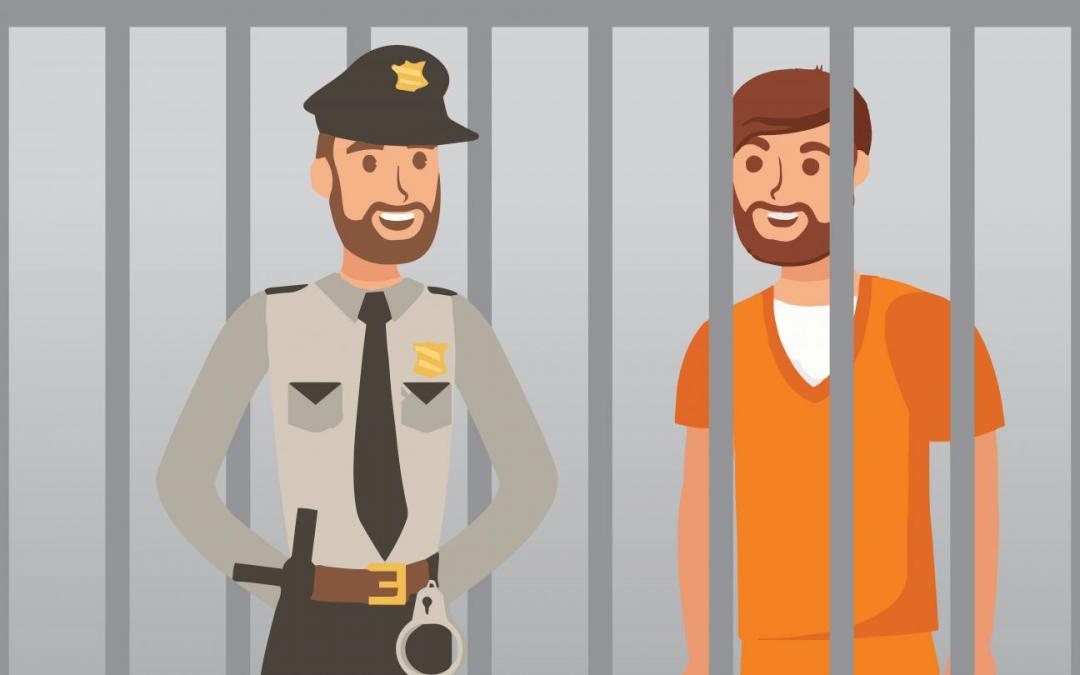A University of Wisconsin Oshkosh educator and researcher has found a little respect and a little decency can go a long way in improving parts of our criminal justice system.
Matt Richie, an assistant criminal justice professor, recently published Managing the Rabble With Dignity and Respect, the results of years of studying how correctional officers manage the jail population. His findings reveal a great deal of the work involves interpersonal communication skills rather than physical force.
So, in a sense, treating people like people makes life easier for both ends of the power dynamic.
“When I was in the jail and observing what they do, immediately it became very clear that over time they had decided to take an interpersonal route more than a physical route,” Richie said. “I think part of that is feasibility—it is much easier to talk with someone than it is to fight with someone.

Matt Richie
“We teach kids that if you want a toy from someone, you ask them and if they say no you find something else. At no point do we say to go punch them and take it. At some point it was so obvious that this is how jails keep order in a potentially chaotic environment.”
‘It’s so basic’
The study, funded by Richie, was published online earlier this year and in the June 24 print issue of the Journal of Crime & Justice, the official publication of the Midwestern Criminal Justice Association. The idea emerged while Richie was working on his dissertation for his doctorate at UW-Milwaukee. He earned that degree in 2018, the same year he conducted the interviews for what two years later would be this published study.
The key portion of the work involved 30 hours of observation inside a county jail and interviews with the jail employees. Richie chose to focus on a jail in a suburban or rural area because there’s already so much known about what goes on in urban parts of the country. He instead wanted to look at a population where resources are limited and recidivism rates are high.
“If you leave the Milwaukee County Jail there are 100 services—for mental health, alcohol abuse, drug abuse, human trafficking, you name it, they have something for it and some nonprofit wants to help you,” he said. “But what we know about suburban and rural areas is that those services are farther and fewer between. So if you have some of these issues it’s harder for you to find treatment.”
The lack of support results in the same people cycling in and out of the jails. And the jail workers on site have learned that in order to make everybody’s experience easier, it’s best to take on a customer service-like approach.
“Remembering that they’re people is so critical,” Richie said. “And it’s so basic.”
“If you’re just not a jerk to these people (there are fewer problems). We’re not saying you need to be their best friend. … We just need you to treat them as if you’d treat the friend of a friend.”
First-hand accounts
Richie wanted to zero in on jails instead of prisons because of the condition many inmates are in when they first land behind bars. When people begin prison time, they’ve been in the system for a while—they are likely clean and sober and receiving treatment for whatever ailments they face. That’s not often the case for people in jail, who might be hours removed from hitting rock bottom. One study he cites, for instance, showed that nearly 75% of jail inmates have both a serious mental disorder and a substance abuse disorder.
With so many obstacles, it was amazing to see the difference a five-minute conversation can make in diffusing a possibly explosive situation, he said. Time and again he observed officers opting to explain what needed to happen, expressing some empathy and avoiding further conflict.
“Every officer I spoke to had these in-depth stories about these individuals’ lives,” he said. “There was one story about a guy who had been clean for six months, then his friend overdosed, then he overdosed a week later because of the funeral. It shows how quickly these people fall apart because there’s no support outside of jail. I think the real travesty about jails is that once you get there, if it’s not your first time, it’s probably your 20th.”
The hope moving forward is this study can be pointed to as evidence of the direction to go throughout the criminal justice system. Even though the order of operations now is to try to talk things through first, use physical force second, sometimes that first step is given up on too quickly or done half-heartedly.
“If I could be King of Jails,” Richie said, “I would hope more jail administrators would take this under. Instead of doing defensive and tactical training so much, really work on interpersonal communication—and not just having that cadence of what to say and the rules of engagement for communication.”
This fall Richie will begin his third year teaching at UWO. He’s heading up four criminal justice classes, including one focused on debunking myths of the criminal justice system and a newly designed course on violent offenders.
And yes, he too will take an approach with students that emphasizes clear communication and understanding.
Learn more:

